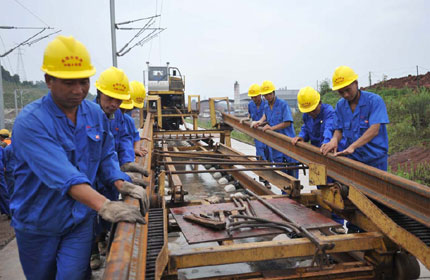Hospitals to adopt liability insurance
Updated: 2014-07-11 23:11
By SU ZHOU (chinadaily.com.cn)
|
|||||||||||
A majority of Chinese hospitals will introduce liability insurance programs by the end of 2015, the National Health and Family Planning Commission said on Friday.
The commission said all third-grade hospitals and at least 90 percent of second-grade hospitals should have adopted the programs by the end of 2015.
"In the following months a supervisory group will be jointly established by five ministries of China to oversee the process in different provinces and cities," said Li Bin, head of the commission.
With rising concerns about medical disputes and potential violence against physicians, increasing numbers of experts are calling for the introduction of a third party to ease tensions between hospitals and patients. When a dispute arises, both hospital and patient can find a neutral body to handle the case.
Insurance companies will cover the compensation in the event of unsatisfactory results caused by medical malpractice.
Since 2007, some pilot cities, such as Tianjin, have adopted liability insurance and mediation organizations, and the results are encouraging. According to local authorities, the success rate of medical mediation in Tianjin is 87.3 percent since 2009.
"We will also revise the related regulations to provide legal ground for this work," Li said. "Last year, we mentioned we would take two years to curb the abnormal trend and maintain the order of medical practice. I think we can do that."
Wang Yue, associate professor at Peking University, considered this a very good move for relieving the financial burdens on small hospitals.
"The participation of insurance companies will relieve financial burdens, especially for county-level hospitals," said Wang. "Besides, the time of solving a dispute will shorten to days instead of years."
To solve medical disputes, Wang also suggested adopting an accident insurance program to offer compensation when hospitals and doctors were not at fault, yet patients still died.
Yu Zhenqiu, director of the hypertension department at Anzhen Hospital in Beijing, said hospitals cannot only rely on insurance and mediation organizations in practice.
"In daily work, all doctors and nurses need to make sure they have done the right things. Every step needs to be right. That's the best way to eliminate disputes and the best weapon to protect ourselves when there is one.
"Communication is also important. Many disputes can be avoided if the doctors simply handle a case professionally."
Related Stories
Liability insurance proposed for food industries 2014-07-03 07:40
Lawmaker calls for pollution liability insurance law 2013-03-07 16:16
Third-party liability insurance open to foreign insurers 2012-02-15 17:15
Finance: Products liability insurance urged 2008-09-28 12:07
Liability insurance rule made 'fairer' for drivers 2007-06-29 11:17
Today's Top News
Berlin expels top US spy from Germany
Israelis hint at invasion of Gaza
Market to 'decide' yuan rate
Lotteries win big on World Cup
Italian EU Presidency: pushing for greater unity
Van Gaal: I taught Romero how to stop penalties
Snowden files asylum extension
Israel steps up offensive, 53 die
Hot Topics
Lunar probe , China growth forecasts, Emission rules get tougher, China seen through 'colored lens', International board,
Editor's Picks

|

|

|

|

|

|





